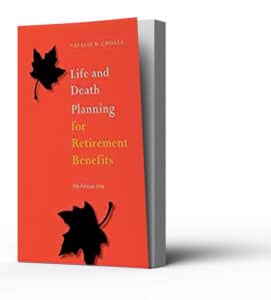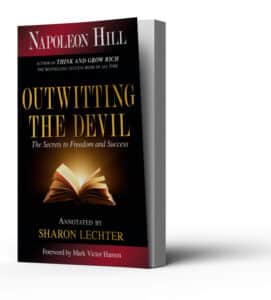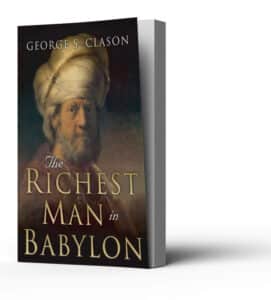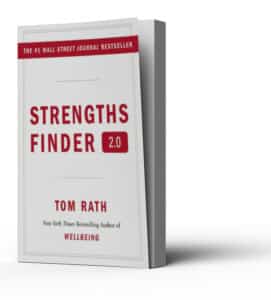Out with the old and in with the new is the usual mantra at this time of year. But not so fast: When Rethinking65 asked financial advisors to tell us what books have proven most helpful or influential in their work, their choices included rare and vintage works and blockbuster bestsellers that they’ve read and re-read over the years.
These books represent more than a memorable reading experience — they can be symbols of a life changing moment.
Life, Death and Taxes
 Andy Panko, CFP, founder of Tenon Financial in Metuchen, N.J., cited a book that one would hardly curl up with on a cold winter night in front of the fire.
Andy Panko, CFP, founder of Tenon Financial in Metuchen, N.J., cited a book that one would hardly curl up with on a cold winter night in front of the fire.
“The book that best helps my practice is ‘Life and Death Planning for Retirement Benefits,’ by Natalie B. Choate,’’ says Panko.
“It’s essentially a user’s guide to the U.S. tax code as it relates to IRAs, Roth IRAs, withdrawal rules, conversions, taxation, etc. It also touches a bit on employer retirement plans like 401(K)s and Roth 401(K)s. The book routinely cites the actual relevant sections of the tax code, but then layers in plain English explanations and usage of hypothetical examples,’’ he says.
Panko says that the book is not a substitute to actually reading and understanding the tax code, but “it definitely complements the process!’’
Choate’s book was published first in 1996 by Ataxplan Publications, and is now in its eighth printing. Called “the bible’’ of distribution planning for IRAs and other retirement benefits, readers can sign up for access to a newsletter that includes Choate’s outline, “Estate Planning post SECURE,’’ an update on new minimum distribution rules.
Panko says the book’s inside-baseball nature hasn’t inspired him to encourage clients to read “Life and Death Planning.’’
“The writing is still fairly technical and uses some acronyms that most people will not be aware of. But for advisors who have a least a basic to intermediate understanding of the tax code and how to read and interpret it, the book is super helpful.’’
Panko subscribes to an online e-version, which includes Choate’s updates as she writes. This version is available through Retirement Benefits Planning.
Once controversial, still powerful
 “Outwitting the Devil” is the top pick of Ron Carson, CEO and Founder of Carson Group. When Napoleon Hill wrote the book in 1938 (just after he published his bestseller “Think and Grow Rich”), it was considered too controversial, notes the nonprofit Napoleon Hill Foundation.
“Outwitting the Devil” is the top pick of Ron Carson, CEO and Founder of Carson Group. When Napoleon Hill wrote the book in 1938 (just after he published his bestseller “Think and Grow Rich”), it was considered too controversial, notes the nonprofit Napoleon Hill Foundation.
“Using his legendary ability to get to the root of human potential, Napoleon Hill digs deep to identify the greatest obstacles we face in reaching personal goals: fear, procrastination, anger, and jealousy, as tools of the Devil,” the foundation says in its description of the book. “These hidden methods of control can lead us to ruin, and Hill reveals the seven principles of good that will allow us to triumph over them and succeed.”
For Carson, “Outwitting the Devil” remains very relevant 85 years since it was penned. “The main takeaway from the book is most of society has fallen under a hypnotic rhythm, and do not think for themselves. We are trying live up to societal expectations, and most of us have no idea of their origin,” he says.
“I’m on a crusade to help people be curious and think for themselves,” says Carson. “I also have a personal mission to help build one human family and original thinking is critical to this being successful.”
A 2020 version of “Outwitting the Devil” has been annotated and edited by accountant and businesswoman Sharon Lechter, co-author of the bestselling book “Rich Dad Poor Dad.”
Inspiring for nearly 100 years
 Leaning toward the inspirational in her choice, Sheryl Garrett, CFP, founder of Garrett Planning Network, admires and uses a book approaching the centennial of its initial publication, “The Richest Man in Babylon,’ by George S. Clason. It’s now published by Words Power, an imprint of General Press.
Leaning toward the inspirational in her choice, Sheryl Garrett, CFP, founder of Garrett Planning Network, admires and uses a book approaching the centennial of its initial publication, “The Richest Man in Babylon,’ by George S. Clason. It’s now published by Words Power, an imprint of General Press.
First published in 1926, Clason’s book is a collection of financial advice conveyed through parables set 4,000 years ago in ancient Babylon.
“It has simple wealth-building principles, as true today as thousands of years ago. It reads like the King James Version of the Bible. I consider it as valuable!’’ Garrett says.
She said she first encountered the book 30 years ago.
“I had been in the industry a few of years already, just looking for more and better ways to think of things in personal finance. The author talked about how people became self-sufficient thousands of years ago. The financial instruments of today can’t erase the mistakes we can make.
Garrett says she rereads the book every few years. “It helps me to focus on the core financial decisions that matter most of the time, rather than getting caught up in the chaos of modernity. I recommended it highly and frequently to the public and clients,’’ says Garrett.
Clason, born in 1874, is worth a study himself: A native of Louisiana, Missouri, he fought in the Spanish-American War and founds the map company that published the first road atlas of the United States and Canada. “The Richest Man in Babylon’’ was a byproduct of a series of pamphlets he published on thrift and financial success, using parables set in ancient Babylon to make his points.
“The book is a masterpiece, it’s inexpensive, and the advice never goes out of style, so it’s-a great holiday gift,’’ Garrett says.
“The Richest Man in Babylon’’ is available online for under $10; one site includes more than 30,000 reviews of the book. It remains in print nearly a century after being first published.
Garrett Planning Network is based in Eureka, Arkansas, but Garrett grew up in Emporia, Kansas.
Talking about the period language of “The Richest Man in Babylon,’’ Garrett says she has a project in mind. “I actually wish to write an adaptation (of the book) in common Kansan,’’ she says.
Building on strengths
 Kay Lynn Mahue, CFP, president of Merit Financial Advisors, based in Alpharetta, Georgia, is bullish on a book that helps its readers understand their strengths and their weaknesses and how to exploit their good points in their work.
Kay Lynn Mahue, CFP, president of Merit Financial Advisors, based in Alpharetta, Georgia, is bullish on a book that helps its readers understand their strengths and their weaknesses and how to exploit their good points in their work.
“This year, Merit has offered to purchase “StrengthsFinder 2.0” as a gift to any of our team members that want to get more insight into their strengths. I am a personality assessment junky, and this is one of my favorites,’’ Mayhue says.
She points to quotes from the book’s author, Tom Rath, that she finds meaningful:
- “From the cradle to the cubicle, we devote more time to our shortcomings than to our strengths.”
- “The key to human development is building on who you already are.”
- “You cannot be anything you want to be — but you can be a lot more of you already are.’’
“StrengthsFinder 2.0’’ was first published in 2001 as part of a management book called “Now, Discover Your Strengths’’ by the polling company Gallup. It remained on bestseller lists for five years. It’s a self-help guide for readers eager to develop their strong points. Rath, an author and researcher, has spent 20 years studying how work can improve health and well being.
“We all have God-given, unique gifts, and that is one of the main reasons I am so passionate about this chapter in my career,’’ says Mayhue. “I spent the first 20 years of my career in a small business. With a team of less than 20 people, everyone had to be somewhat of that jack of all trades,” she says.
“With Merit now at almost 200 team members, we get to focus on the individual strengths of each of our team members and surround them with support on the weaknesses. The key to building an interdependent team is twofold: 1) Helping people realize what their core strengths are and 2) Building a culture that supports a team approach to serving our clients and their advisors,’’ Mayhue says.
Food for thought
James Brewer, CFP, founder of Chicago-based Envision Wealth Planning, went right to the top in his pick: the best-selling 2011 book on behavioral economics by 2002 Nobel Prize winner Daniel Kahneman, “Thinking Fast and Slow.’’ The book has sold more than 1.5 million copies and was snugly on the New York Times’ bestseller list for more than five years. Kahneman, of Princeton University, won the Nobel Prize in Economic Sciences “for integrating psychological insights into economics,’’ specifically addressing the phenomenon of loss aversion.
“I frequently say that Daniel Kahneman’s “Thinking Fast and Slow” changed my life. It helped me see the reasons that people often make suboptimal financial choices. Kahneman provides a decision framework, one that is slow, and quick to use shortcuts and make conclusions without much thought,’’ Brewer says.
“The other framework is a slower, more methodical one. It explains why we should provide what Richard Thaler, referred to as Nudges, in order to help clients make better decisions. Thaler’s work was incorporated into “Save More Tomorrow,” a book on how to help employers help their employees adequately save for retirement.
“Because of ‘Thinking Fast and Slow’ and ‘Nudges,’ I now incorporate long-term care as a need/goal to cover all of my financial plans, no matter the age of the client. For younger clients, it typically has led to conversations about parents and grandparents, too.
“One client who was concerned about a parent discovered that the parent had a multimillion-dollar net worth that my client was unaware of, thus calming her fears. The rest of the cases have not been so easy to address. Making long-term care a default choice has led my clients down a better path,’’ says Brewer.
In addition, “Kahneman’s book eventually led me to being able to author [the chapter] “Individual Biases in Retirement Planning and Wealth Management” in the book “Financial Behavior, Players, Services, Products and Markets.”
In a four-decade career in journalism, Eleanor O’Sullivan has reviewed many books on best practices for financial advisors, has written for Financial Advisor and the USA Today network, and was the movie critic for the Asbury Park Press.







